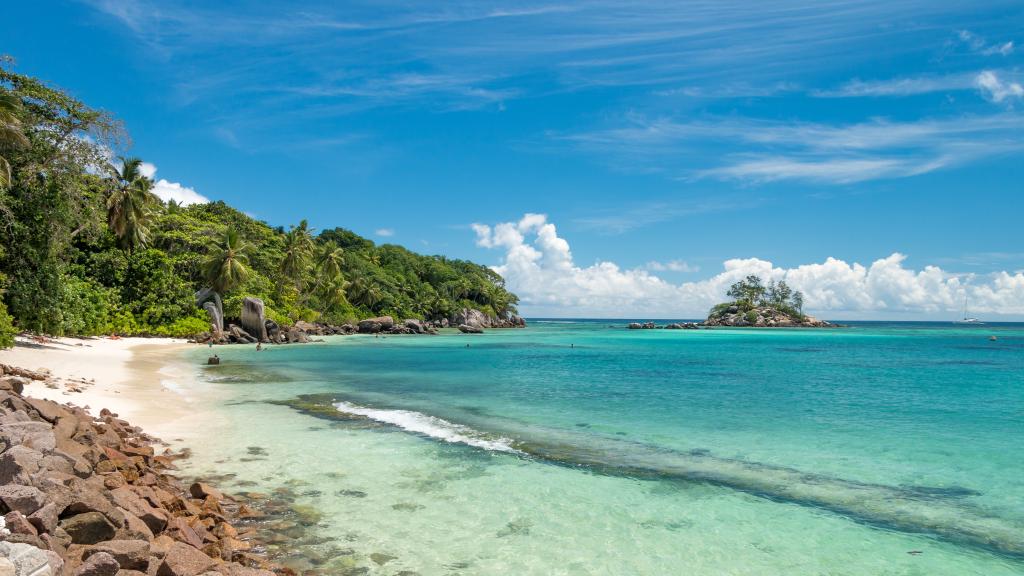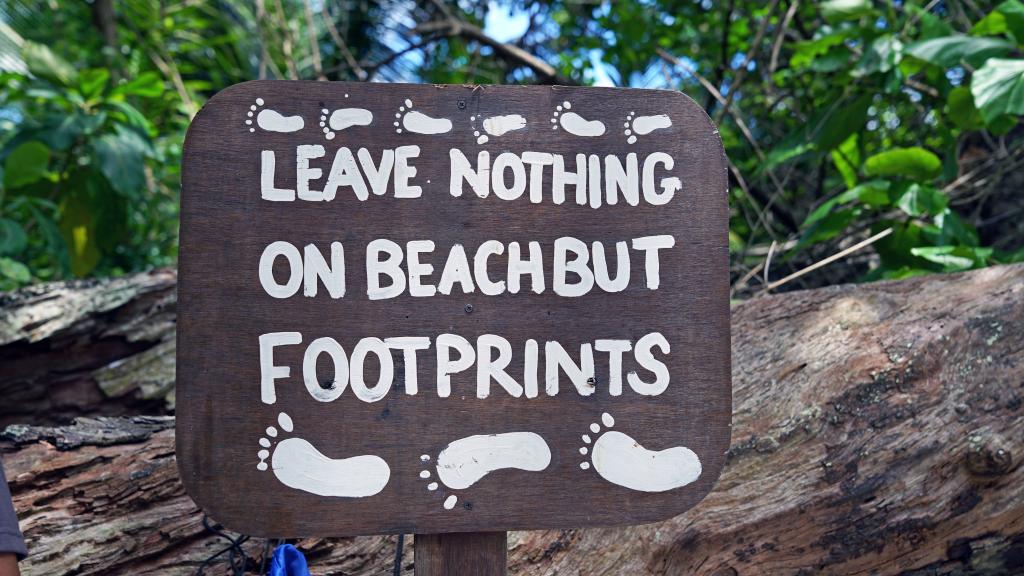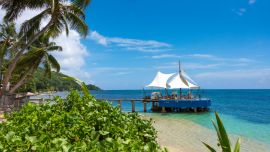Sustainable Travel
Visit the Seychelles responsibly
The Seychelles is a natural paradise without equal on Earth. If you’ve had - or will have - the luck of seeing them in person, you should take a moment to appreciate the privilege of visiting such a wonderful, pristine corner of our planet. These small islands welcome thousands of tourists every year, and it’s up to each one of us to maintain a respectful and sustainable attitude towards the Seychelles ecosystem and population, so that this paradise on Earth can keep thriving. Read our tips on how you can minimise your impact on the environment when visiting the Seychelles.

In the hotel…
- Don’t waste electricity: Turn off the TV, lights and air conditioning when you leave the room.
- Don’t waste water: Avoid taking long showers and don’t request a change of towels every day. Instead of leaving them on the floor, hang them up: the hotel staff will know you want to use them again.
- Don't waste products: Try to open and use only those products provided by the hotel that you really need.
- Bring your own: Consider bringing your own shower gel and shampoo (even better if they’re in bar form). Similarly, you could bring your own reusable make-up removing pads instead of using the hotel’s disposable ones.
When you’re out...
- Handle your waste responsibly: Always throw your trash into the appropriate bins; separate your trash whenever possible; do not create more waste than necessary (e.g. do not leave objects in the Seychelles that you have brought from home).
- Respect the local flora and fauna: Do not remove plants and do not harm the animals. For example, don’t ride the giant tortoises and only feed them if you have permission to do so.
- Respect the destination and its people: The needs of the local people and of the environment should come before the wishes of travelers.
- Choose eco-friendly activities: When booking an excursion, make sure that it does not damage the ecosystem. Try taking part in experiences that have a positive social or environmental impact, such as conservation projects that are open to tourists.
- Get around in a sustainable way: Whenever possible, e.g. on La Digue, move around by bike instead of by car. On Praslin and Mahé, try taking the local buses.
At the beach & in the sea...
- Choose and wear sunscreen consciously:
Although no sunscreen has proven to be completely harmless for the coral reef, it is good to prefer those with titanium oxide or zinc oxide, natural mineral ingredients. These compounds are found, for example, in sunscreens for children or for sensitive skin. Sunscreen containing oxybenzone (also called Benzophenone-3 or BP-3) or octinoxate should be avoided. Instead of relying on labels like "reef-safe", you should always check the list of ingredients. - Protect your skin with clothing instead of cream:
Clothing such as UV-shirts or simple t-shirts are a great option for protecting your skin from the sun when you are in the water. Wearing a long-sleeved shirt can greatly reduce the amount of sunscreen you apply, thus limiting the release of harmful substances into the marine ecosystem. - When snorkelling or Scuba diving, don’t touch or step on the coral.
- Visit the beach responsibly: do not leave rubbish on the beach, do not damage plants and refrain from taking shells or corals as a “souvenir”. The removal of shells from beaches could damage ecosystems and endanger organisms that rely on shells for their survival, such as birds, sponges, algae, fish and hermit crabs.

When you eat…
- Choose local over imported: Some examples are fruit, vegetables and beer.
- When eating fish, avoid the most vulnerable and overfished types. In the Seychelles, you should avoid tuna, shark, certain groupers (blacksaddled coral grouper, brown-marbled coral grouper, camouflage grouper, roving coral grouper) and parrotfish.
- Don’t eat endangered plants or animals: If trying Coco de Mer or turtle meat seems like an exciting, exotic experience to you, stop and think that you are actively promoting the extinction of an entire species.
- Avoid single-use plastic: Say no to plastic plates, cutlery and straws.
To further reduce plastic waste, consider buying a reusable water bottle with an integrated water purifier.
When you shop...
- Buy souvenirs ethically: Choose local (preferably handmade) products over imported ones. Many "souvenirs" are produced in other countries and then imported, and are therefore a source of emissions (and they’re not authentic at all). Do not buy any souvenirs made from endangered or protected species.
- Seek out local artisans and artists when you can. This way you can support them and help them preserve the Creole heritage.
- Bring your own reusable shopping bag and avoid getting plastic bags in shops.
When hiking...
- Stay on marked trails: Going off the beaten path could mean trampling on protected or endangered plants.
- If you spot some trash on the ground while hiking, you could pick it up and dispose of it correctly once your hike is over.
After your holiday...
- Share tips on sustainable travel with friends and family.
- Consider making a donation to a Seychelles environmental organization.
